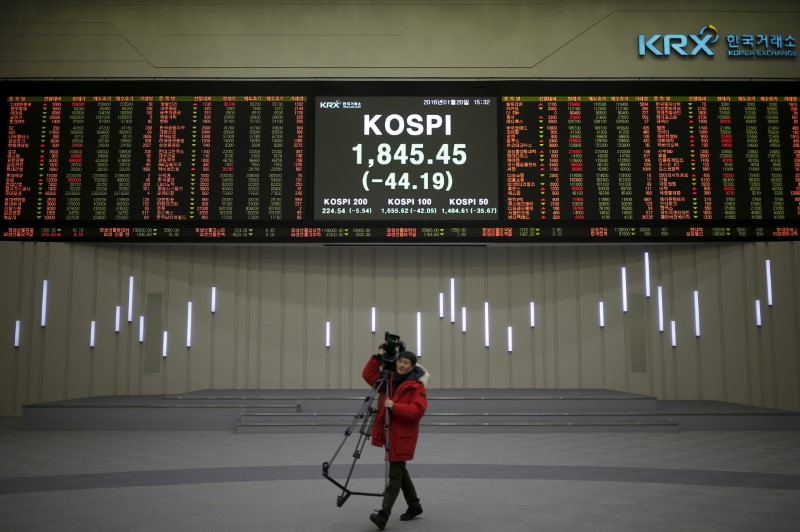This post was originally published on this site
https://i-invdn-com.investing.com/news/LYNXMPED0803Y_M.jpg
Investing.com — Most Asian stock markets retreated on Thursday amid persistent fears of rising U.S. interest rates, although a stronger-than-expected revenue forecast from Nvidia boosted regional technology stocks, particularly those of chipmakers.
The Taiwan Weighted index was the best performer in Asia for the day, up 1.3% on gains in heavyweight chipmaking stocks. U.S. Chip designer Nvidia Corporation (NASDAQ:NVDA) forecast first-quarter revenue above market estimates and cited increased demand for chips used to power artificial intelligence services.
Shares of the firm jumped more than 8% in aftermarket trade, with gains also spilling over into Asian stocks, many of which are suppliers to the chipmaker. Taiwan Semiconductor Manufacturing Co (TW:2330), which is among Nvidia’s biggest subcontractors, jumped over 2%.
Hong Kong’s Hang Seng index rose 0.3%, while South Korea’s KOSPI added 1%. The KOSPI index rose as the Bank of Korea held interest rates after a nearly 18-month-long hiking spree.
Still, the outlook for technology stocks remains constrained, especially with U.S. interest rates set to rise even further. Chipmakers are also facing a potential demand slowdown this year, with global firms cutting their spending on tech due to recessionary fears.
Broader Asian stocks moved in a flat-to-low range, as the minutes of the Federal Reserve’s February meeting reiterated the bank’s hawkish rhetoric. Recent inflation data, which was released after the Fed’s meeting, is likely to add more fuel to the bank’s hawkish stance.
China’s Shanghai Shenzhen CSI 300 and Shanghai Composite indexes rose less than 0.1%, while Malaysian stocks led losses across risk-heavy Southeast Asian bourses with a 0.4% drop.
Asian trading volumes were also somewhat muted due to a holiday in Japan. Still, most regional indexes were nursing steep losses for the week, as the prospect of rising U.S. interest rates drew foreign capital away from the region.
Focus is now on a revision of fourth-quarter U.S. GDP data, due later in the day, as well as a reading on the Personal Consumption Expenditures index – the Fed’s preferred inflation gauge – due on Friday.
Strength in the U.S. economy gives the Fed more headroom to keep raising interest rates, with stronger-than-expected PMI data furthering such a notion this week.
Australia’s ASX 200 index fell 0.4%, even as data showed capital spending among private firms grew more than expected in the fourth quarter. The data reflects some strength in the Australian economy, as it struggles with high inflation and slowing growth.


